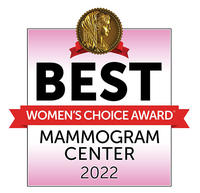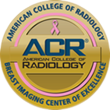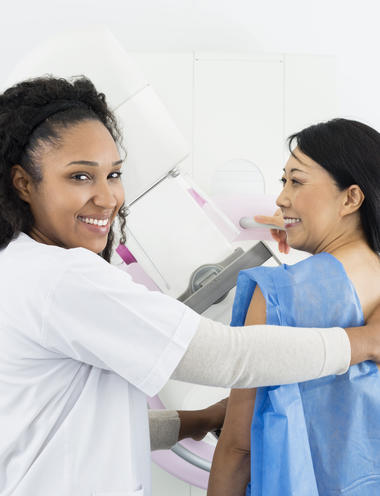 Good Samaritan Medical Center’s Women’s Imaging Center has also been named one of America’s Best Mammogram Imaging Centers by the Women’s Choice Award.
Good Samaritan Medical Center’s Women’s Imaging Center has also been named one of America’s Best Mammogram Imaging Centers by the Women’s Choice Award.
 Good Samaritan Medical Center’s Women’s Imaging Center's radiologists are board certified by the American College of Radiology and our technologists are registered by The American Registry of Radiologic Technologists, state licensed, and certified by the Department of Public Health in mammography. Our qualifications are your peace of mind.
Good Samaritan Medical Center’s Women’s Imaging Center's radiologists are board certified by the American College of Radiology and our technologists are registered by The American Registry of Radiologic Technologists, state licensed, and certified by the Department of Public Health in mammography. Our qualifications are your peace of mind.
Mammograms and Breast Exams at Good Samaritan Medical Center
Digital mammography is the most effective method of early detection in the fight against breast cancer. This technology offers women a number of benefits, including improved image quality, reduced procedure time and enhanced patient comfort.
Our breast imaging services include:
- All-digital screening mammography and diagnostic mammography
- Breast MRI
- Ultrasound
- Stereotactic breast biopsy
- Ultrasound-guided needle core biopsy
- Tomosynthesis (3D mammography)
Flexible appointments are available, including evening hours on Tuesday and Wednesday. A physician referral for a screening mammogram is not required.
Mammograms
One out of eight women will develop breast cancer at some point in their lives. That's why breast exams are such an important aid in early detection, especially for women over 35. A mammography exam can detect a tumor long before you can feel it. Such early detection of breast cancer can save your life. It can also give you an opportunity to choose between treatment options.
Mammogram and breast examination guidelines:
- If you are between the ages of 20 and 40, you should perform a breast self-examination every month and have a breast examination by a physician every three years
- If you are between the ages of 30 and 35 and have a strong family history of breast cancer, you should have a mammogram
- If you are 35 or over, a baseline mammogram should be done for later comparison
- By age 40, you should do a breast self-examination every month, have a breast exam by a physician and a mammography every year
- After age 50, you should continue your breast self-examination every month, and have a physician breast exam and mammogram every year
Who's at risk for breast cancer?
Because breast cancer is the most common type of cancer in women, every woman should consider herself at risk. However, the following factors put you at higher risk for breast cancer:
- Over 50 years old
- Previous breast cancer or benign breast disease
- Family history of breast cancer (especially maternal)x
- No full-term pregnancies
- Pregnancy of first child after age 30
- Early menstruation (before age 13)
- Late menopause (after age 52)
- Diet high in fat
- Obesity
What are the symptoms of breast cancer?
Since most breast cancers are discovered by women themselves, it is important for you to know what to look for:
- A lump or thickening in the breast
- A change in breast shape
- Discharge from the nipple
- Skin changes (color, texture, consistency)
- Puckering or dimpling
- Nipple inversion (pulling inward)


 Good Samaritan Medical Center’s Women’s Imaging Center has also been named one of America’s Best Mammogram Imaging Centers by the Women’s Choice Award.
Good Samaritan Medical Center’s Women’s Imaging Center has also been named one of America’s Best Mammogram Imaging Centers by the Women’s Choice Award.  Good Samaritan Medical Center’s Women’s Imaging Center's radiologists are board certified by the American College of Radiology and our technologists are registered by The American Registry of Radiologic Technologists, state licensed, and certified by the Department of Public Health in mammography. Our qualifications are your peace of mind.
Good Samaritan Medical Center’s Women’s Imaging Center's radiologists are board certified by the American College of Radiology and our technologists are registered by The American Registry of Radiologic Technologists, state licensed, and certified by the Department of Public Health in mammography. Our qualifications are your peace of mind.